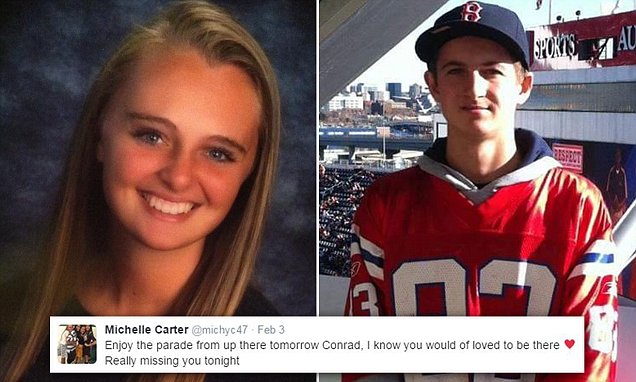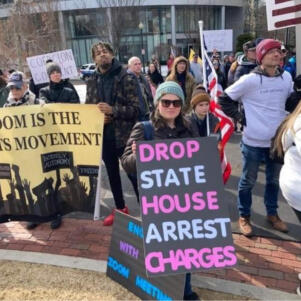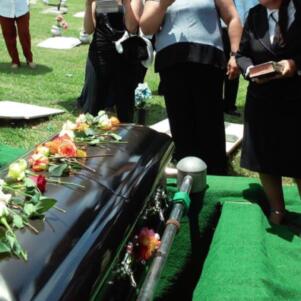Longtime defense attorney picks apart Michelle Carter case
By Evan Lips | July 7, 2016, 6:04 EDT
 (Courtesy — Facebook)
(Courtesy — Facebook) BOSTON — A veteran criminal defense attorney says the state’s case against a teen criminally accused of goading her boyfriend into making good on his suicidal threats will be a difficult one for prosecutors, noting that there’s been “nothing else like it.”
“I’m quite confident that prosecutors, at least in Massachusetts, have never encountered a case quite like this,” said Kerri Quintal, a Massachusetts attorney who has practiced law for 19 years.
She is not representing Michelle Carter, who was 17 in 2014 when she allegedly encouraged 18-year-old Conrad Roy III to kill himself. Quintal, however, said this week she’s been diligently following the proceedings, as the outcome could cause legal reverberations.
At the top of Quintal’s list of questions is how the law reacts to technological advances.
“Our laws aren’t keeping pace with technology,” said Quintal. “And that’s one of the problems we’re beginning to see more and more of.”
A relationship consisting mainly of text messages and phone calls, at least according to court documents, could pose problems for prosecutors looking for legal precedence, Quintal said.
Last week the Supreme Judicial Court ruled that the state has the legal authority to press charges against Carter.
In the unanimous ruling, Justice Robert Cordy wrote that “there was probable cause to show that the coercive quality of the defendant’s verbal conduct overwhelmed whatever willpower the eighteen year old victim had to cope with his depression, and that but for the defendant’s admonishments, pressure, and instructions, the victim would not have gotten back into the truck and poisoned himself to death.”
According to transcripts of text messages shared between the two, Carter was well-aware of Roy’s history of depression and mental illness in addition to a previous suicide attempt. The text chain culminated in Roy’s July 12, 2014, suicide. The SJC decision rehashed the details leading up to Roy’s suicide and honed in on the detail that the teen had told Carter of his plan to run a lethal carbon monoxide-emitting generator inside his truck while he sat with the windows rolled up.
Court documents indicate that at one point Roy left the truck, only to be coaxed by Carter to return.
Carter’s attorney Joseph Cataldo has held that his client should not have been charged with manslaughter as Massachusetts lacks laws criminalizing the encouragement or assisting of suicide.
Quintal said the detail mentioned by Cataldo reminded her of a hypothetical situation a law school professor once posed to her.
“Basically the analogy goes like this — we’re out to dinner and you choke on chicken bone,” Quintal said. “I don’t have to save you but I can’t impede help from getting to you, I can’t block paramedics from getting to you.
“Did she impede the ability to get him help? There’s a lot here.”
The analogy, Quintal said, may apply to Carter’s situation.
“She (Carter) didn’t call for help, but did she have a duty to help him?” Quintal said. I don’t know if she did have a duty to help him — but I don’t think she had a duty to make it worse.”
Quintal also noted that it was not Carter who purchased the generator, turned it on and let it run inside Roy’s truck.
“But she did encourage him,” Quintal added. “Is that morally reprehensible? Absolutely. But does it raise it to the legal standard?”
Another question Quintal cited is whether freedom of speech protections can apply to the case. However, Quintal also noted that prosecutors can easily prove that Carter showed an acknowledgement of her wrongdoing due to the chain of texts she sent asking Roy to delete the messages from his phone.
In another series of texts between Carter and a friend identified as Samantha Boardman, the teen shows an admission of guilt:
“Sam, [the victim’s] death is my fault like honestly I could have stopped him I was on the phone with him and he got out of the [truck] because it was working and he got scared and I (expletive) told him to get back in Sam because I knew he would do it all over again the next day and I couldn’t have him live the way he was living anymore I couldn’t do it I wouldn’t let him,” Carter wrote.
Quintal also wondered whether their relationship was strictly based on technology. Court documents indicate that Carter and Roy lived roughly 50 miles apart and that their interactions were largely restricted to texts and phone calls.
“I’m still trying to understand the whole romantic online relationship, I don’t know what it means,” Quintal said. “Did they even Skype? Did they even do Facetime? Or was it all texts?”
Quintal pondered whether Carter has any history of mental illness and whether her mindset on the night of July 12, 2014, will also come into play during court proceedings.
“Nobody has raised that issue,” Quintal said. “What was her mental state?”
Quintal also wondered whether there were others who also encouraged Roy to make good on his suicidal threats and questioned Carter’s actions were what really caused Roy to kill himself.
Quintal stressed that she does not have an opinion as to whether or not Carter should face criminal charges.
“You do hear of people jumping the gun and saying, ‘oh she’s definitely going to be convicted’ — but not so fast, people, this is not a cut and dry case by any stretch,” Quintal said. But everyone can agree what she did was atrocious — every single one of us gets that — yet the question is, will this raise to the legal liability level?”











